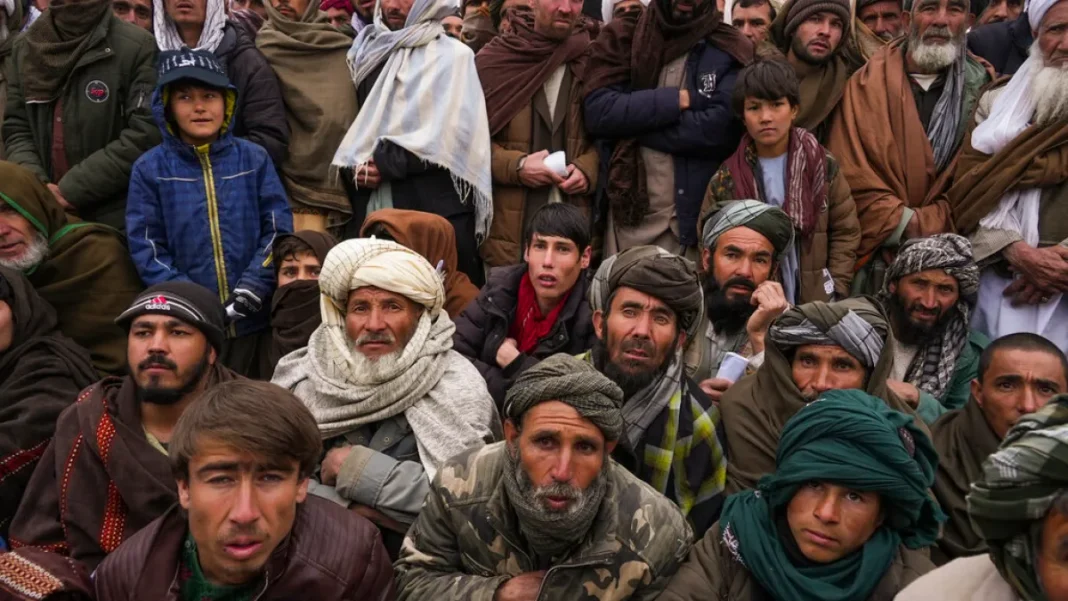Kabul, 20 February 2024 (TDI): Afghanistan is considered one of the most indigent countries in the world and is going through a humanitarian crisis.
It has continued to adjust itself with over four decades of violence, deep-rooted poverty, climate change, limited access to healthcare, and education, and rising unemployment.
In 2024, approximately 23.7 million people, which is over half of Afghanistan’s population, are in dire need of humanitarian assistance.
However, according to the UN Secretary-General Antonio Guterres, this humanitarian response has received less than 3 pc of the funds required.
The Afghanistan Humanitarian Response Plan (HRP) is still extremely underfunded with only US$744 million received as of 31st July 2023, which is less than the amount received in 2022 which stood at US$1.49.
Moreover, the Afghanistan humanitarian response is experiencing a great “critical funding gap” which equals to US$1.3 billion, with many other plans already being shut down because of deficient funding.
In addition to this, immediate funding is required to enable humanitarian partners to reach girls and women, who are the most vulnerable in Afghan society.
Moreover, bans on Afghan female aid workers lead to the generation of added financial and operating costs which require additional donor flexibility and funding.
Discrimination against women
The education platform in Afghanistan has been demolished owing to three decades of ongoing conflict. For many children in the country, especially for girls, completing primary education remains an unattainable dream. In addition to this, the percentage of girls enrolled in schools in rural areas remains insufficient.
According to estimates, 3.7 million children in Afghanistan are not enrolled in schools, with 60 percent of them being girls. Moreover, another reason lies in there being a limited number of school teachers in rural areas.
The main reason behind women not receiving education in schools is because of the notion of insecurity and traditional norms and practices associated with the role women and girls play in their society. Only a resounding 16 percent of Afghanistan’s schools are girls only, with a majority of them possessing limited adequate sanitation facilities.
Also Read: Pakistan and US discuss the situation in Afghanistan
Access to healthcare
A sharp decline in financial and technical development support for Afghanistan’s public health system, since the Taliban took over the country in August of 2021, has gravely impacted the country’s healthcare system.
In the aftermath of the Taliban takeover, the disintegration of the Afghan economy coupled with the loss of thousands of jobs left people unable to pay for their medical expenses, exacerbating the social detriments to their health.
In the past two decades, the Afghan government has been reliant on international development support from donors to receive funds for services such as primary healthcare.
However, with the Taliban taking over, the World Bank and other donor countries and institutions suspended development funding which included healthcare.
Along with this, aid organizations have also shut down clinics because of a lack of funds, and local aid groups that are unable to import their supplies announce shortages of medicines and equipment.
Rising unemployment
The loss of jobs in Afghanistan after the Taliban swept the country in 2021, resulted in more than half a million in the third quarter and is expected to reach 900,000 by mid-2022, according to the International Labor Organization (ILO).
“The situation in Afghanistan is critical and immediate support for stabilization and recovery is required,” reported Ramin Behzad, Senior Coordinator of the International Labor Organization (ILO) for Afghanistan.
Many jobs have been lost in various sectors of the country. This includes agriculture and the civil society. The takeover by the Taliban has left “hundreds of thousands” of Afghan security members to lose their jobs, where teachers and healthcare workers have been most deeply impacted.
The Diplomatic Insight is a digital and print magazine focusing on diplomacy, defense, and development publishing since 2009.



